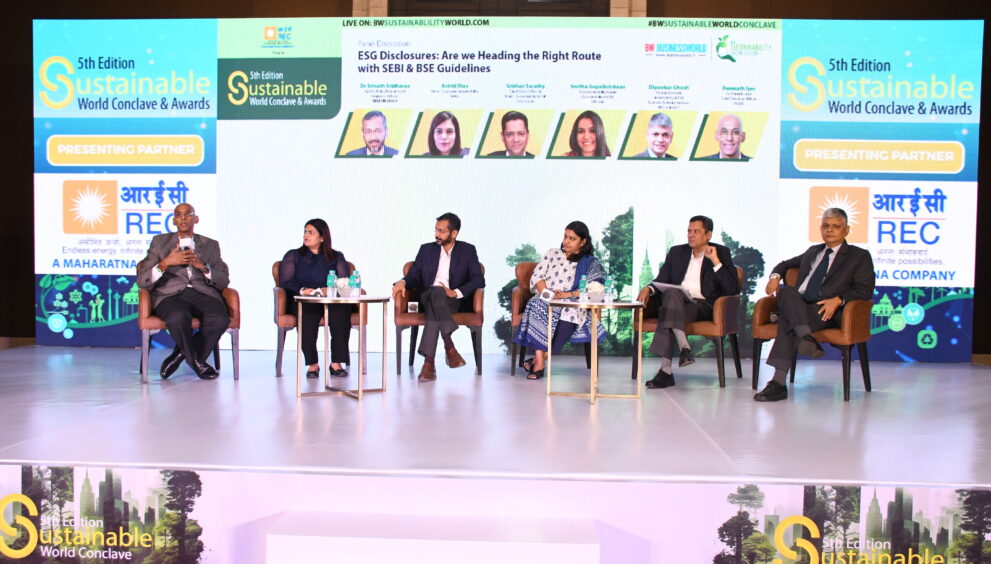ESG Disclosures: Are we Heading the Right Route with SEBI & BSE Guidelines

Experts at the Sustainability edition of Business World “Financial Capital Chapter” had a discourse on the ESG journey getting ameliorated with the regulations or the businesses also providing inputs to the regulators. The concern is that certain companies look at ESG as a type of guideline, whereas few companies consider it as an altruistic contribution to a better society.
“Regulation never creates transformation. Regulation creates transparency, transparency creates curiosity, curiosity propels people to ask questions which enhance businesses’ accountability to their shareholders”, said Ramnath Iyer, Co-founder and Chief Executive Officer of ESGDS.
The Securities Exchange Board of India (SEBI) has specified the Business Responsibility and Sustainability Report (BRSR) within which there are core indicators, leadership indicators, and key performance indicators or disclosures that need to be done mandatorily and should be assured by an independent service. The independent body also has to certify that the discourses made are credible.
SEBI has not only ensured transparency but also set a goal that by 2026-27 top thousand companies have to have reasonable assurance. The Western world is still trying to implement this by the same period, added Iyer.
Astrid Dias, Head of Corporate Sustainability, Voltas said, “Our company Voltas is still learning and fumbling which reminds me about the difficulties MSME firms are going through due gap in resources and the newness of the concept. However, we are training them and explaining to them about such concepts.”
SEBI has done a good job in terms of BRSR. There was a lag in Banking Regulatory Reporting (BRR) that BRSR covers comprehensively. Firms must be transparent while reporting whether they have taken any initiative or not. India has done a better job compared to other countries and is striving to improve its standards.
She further added while highlighting the challenges which include restraint of resources, communicating with stakeholders and additionally, BRSR covers the value chain instead of its operations which becomes a difficult task.
On the contrary view, Dipankar Ghosh, Partner & Leader, Sustainability & ESG, Business Advisory Services, BDO India LLP said, “Increasing regulatory pressure often becomes detrimental, reporting supply chain data on an immediate basis dilutes credibility. However, these kinds of regulations nudge us to think in the right direction. Affect may not come immediately but ultimately”.
Regulatory developments should be appreciated to provoke such discourse and provide a platform as well.
“In God we believe, in data we trust. More boardroom discussions are taking place and to finance such purposes there are certain organisations which finance such purposes. Responsible finance is also being assured by the fixed standards”, said Sridhar Sarathy, Chief Ethics Officer and Head of Sustainability & CSR at Tata Capital.
Smitha Gopalkrishnan, Asia Sustainability Leader (Sustainability & CSR), 3M India said, “Having an ESG council which could put the data in a way to reflect a big picture can be a great initiative. Every job is a climate job, so rewriting job profiles in tandem with sustainability goals is essential”.
Experts concluded with the view that if sustainability problems are solved creatively, it gives a business an alpha which others do not have. Interestingly, incorporating such goals in the organisation also gives glamour to the stock market. Employment goals, financial inclusion, profitability, inclusion of marginalised people etc. can be achieved with sustainability.












































































































































































































































































































































































































































































































































































































































































































































































































































































































































































































































































































































































